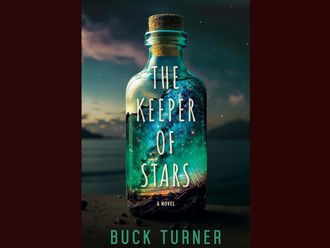Campaigning for the Ukrainian presidential election began recently with all signs pointing to an unusually close race for the presidency.
There has never been such a fierce campaign in the short history of the country. The pro-Russia former prime minister and Party of Regions Leader Viktor Yanukovych faces a smear campaign orchestrated by Kiev politicians who have opened a long-forgotten case of rape and assault against him dating back to the seventies, when he allegedly belonged to a gang.
Yanukovych has fired back by accusing his primary foe, Prime Minister Yulia Tymoshenko, of using "black magic" to convince voters to cast their ballots for her. He has levelled more serious allegations against President Viktor Yushchenko, accusing him of failing to address the catastrophic effects of the financial crisis that has made life difficult for a significant percentage of the labour force in a country whose economy depends heavily on factories and mines. Yanukovych has also accused Tymoshenko of not dealing properly with the swine flu epidemic.
Post revolution
Ukraine's fifth presidential elections since independence, to be held on January 17, truly represent the climax of a five-year conflict between opposing forces. It will be the first election since the Orange Revolution from late November 2004 to January 2005. Protests and demonstrations following allegations that the vote was rigged in favour of Yanukovych eventually brought to power the first "truly Ukrainian" president in Viktor Yushchenko, as opposed to a leader with links to Russia.
The pro-West patriotic revolution represented a devastating setback for the Russian "privileged sphere of influence". Although the Soviet Union had already ceased to exist, at that time Washington and Moscow were still competing in the region, as can be seen also by events such as Georgia's Rose Revolution in 2003. Today, however, the political climate is very different.
The White House and the Kremlin agreed last summer on issues ranging from missile defence to Iran's nuclear programme. Under Barack Obama's administration, Washington has scaled back plans to encourage the democratisation of the Caucasus. Furthermore, Washington is no longer interested in lending even verbal support to anti-Russian pressure groups in the region.
Yushchenko has moved away from centrist patriotism to nationalism in a bid to restore his sharply declining popularity, especially in central Ukraine. He never talked about joining Nato or the EU during his 2004 campaign, but has spoken recently about "strengthening the Euro-Atlantic system of collective security".
Tymoshenko, in her turn, has sought to boost her popularity by reaching out to the public. She has read the changes in the international arena well and mixes pragmatism with her ideology. She made a deal with someone she did not trust — Russian Prime Minister Vladimir Putin — pulling the rug out from under the feet of Yanukovych, who believes all roads lead to Moscow.
Tiebreaker
Another figure who could play a decisive role in this election is the ‘Ross Perot of Ukraine', former chairman of the Verkhovna Rada (parliament) and former foreign minister Arseniy Yatsenyuk. An independent young candidate, the outspoken, wealthy economist and liberal politician enjoys the support of around 12 per cent of Ukrainians.
If he were to back one of the leading candidates, Yatsenyuk could potentially decide the winner. His support base leans more towards Tymoshenko, as Yatsenyuk advocates a visa-free regime with EU countries and opposes calls to make Russian a second language in Ukraine.
Ukrainians fear that they may again become victims, as they did decades ago, of a possible compromise between Washington and Moscow — this time as a result of Obama's accession to power. As their own election draws closer, they pray that the political confrontations in their country will be brought to a close and that the most devoted and pragmatic leader will emerge victorious.
Rauf Baker is a Dubai-based journalist who specialises in Eastern European Affairs.








